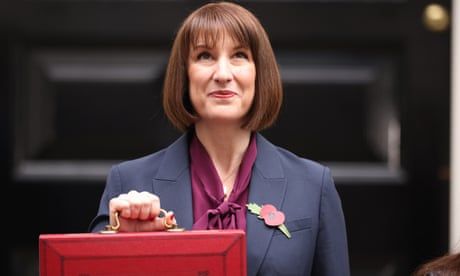
Rachel Reeves’s spending plans signal a welcome break with the past and underline the scale of the challenges facing Britain
The first Labour budget in 14 years introduced some much-needed honesty on the requirement for higher taxes and borrowing in an ageing society characterised by sluggish economic growth and a deteriorating public realm. This allowed Rachel Reeves to earmark essential resources for schools and hospitals, and to increase levels of public investment to secure future growth. That this budget had no hope of being a magic bullet for Britain’s economic woes, however, is no reflection of Reeves’s lack of ambition, but a sign of just how bad the problems she inherited are.
The Conservatives’ approach to the economy has made the longstanding issues that have for decades plagued the UK worse. Through cutting back the state while doling out tax cuts to affluent households, then pursuing a hard Brexit, successive Conservative prime ministers have caused huge damage to the economy in pursuit of ideology and worsened the impact of the unenviable economic headwinds of recent years. In his last budget as chancellor, Jeremy Hunt offered up a £23bn cut in national insurance that the UK could not afford, paid for by baking in unachievable spending cuts after the July election: the height of fiscal irresponsibility. Kemi Badenoch, today elected leader of the Conservative party, will no doubt continue to cleave to a wrong-headed predilection for a small state.
Continue reading...